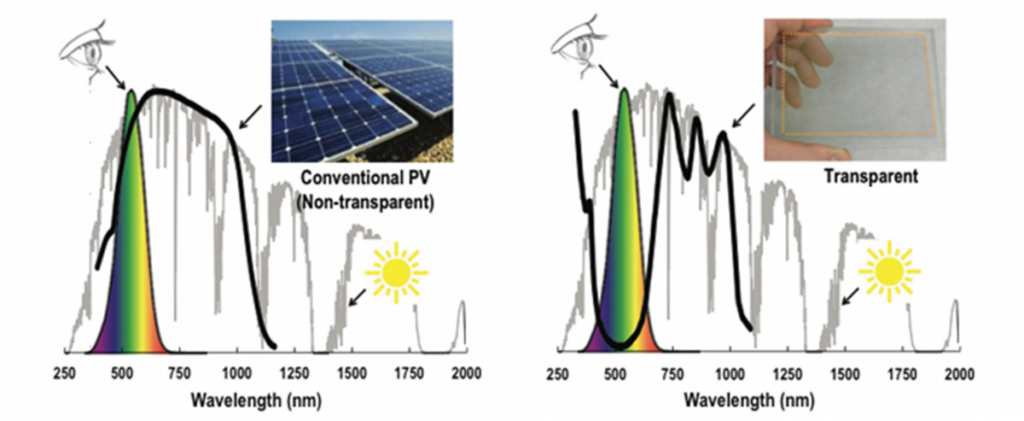By Kerry Rippy, Sustainability Leadership Fellow and PhD Candidate in the Department of Chemistry
If you’re reading the SoGES Human Nature blog, chances are you’re already a proponent of renewable energy development. Why? Probably because you’re worried about climate change. That’s a great reason to advocate for sustainable energy, but it’s also a controversial and politicized topic that doesn’t always lend itself to reasonable discussion. To be unambiguously clear, this post is not meant to trivialize the importance of climate change or imply that we should shy away from discussing it. However, we live in a world of ‘alternative facts.’ There’s plenty of rhetoric out there to give generally reasonable people grounds to disagree with you about climate change. Fortunately, as a researcher devoting my career to sustainable energy, I think there are plenty of reasons, besides climate change, that my field is important and, frankly, exciting!
Let’s think of these reasons as a new type of ‘alternative facts,’—alternative not in the sense of being wildly unsubstantiated claims, but rather, in the sense that they’re based on validated scientific data that are not as polarizing as climate change. Just maybe, even if we can’t agree about the impact of fossil fuels, we can agree to take action and support renewable energy development. It’s important, because, as this MIT study points out, developments in the oil and gas sector mean that they aren’t going to run out or become unfeasibly expensive anytime soon.
The first, and probably least controversial alternative fact I think we can all agree on is that we should really be funding more battery research. While this would have a major impact on the field of renewable energy, there are plenty of other reasons to want better batteries as well. Everybody wants faster-charging, longer-lasting batteries for their smartphones and laptops, right? And battery research is also humanitarian cause. Read this, and that lithium cobalt oxide battery in your cell phone might feel a little heavier. Cobalt used in many batteries is almost entirely sourced from hand-dug mines in the Congo that, among other atrocities, utilize child labor. Better batteries that are faster, longer lived, and aren’t the root of a humanitarian crisis is something we can all agree on wanting, right?
And better batteries would really be a huge leap for renewable technologies. Right now, the energy density of a battery is less than a hundredth that of gasoline, so you need a 100-pound battery, or 1 pound of gasoline, to go the same distance, as reported here in APS physics news. Better batteries would also address the problem of storing energy generated by renewable sources like solar and wind. Electricity isn’t like liquid or gas fuels–you need technology a bit less rudimentary than a big tank to store it.
Alright, so we can agree on funding ways to store renewables. What are some alternative facts to get us all excited about generating it? Well, two of the primary sources are wind and solar. Let’s talk about some developments happening in those fields.
Let’s start with solar panels. You’re probably thinking of big heavy black panels stuck on the roof. But solar technology has is developing into so much more than that! Funding solar research could open up avenues of power generation that we have never before conceived. My own research is focused on organic solar cells. These solar cells are made of a lightweight, cheap material based on carbon molecules. We can make molecules that absorb most of the sun’s spectrum, but not visible light. We can also make molecules that are flexible. That means we can make solar windows, solar fabric, solar paint, Elon Musk’s solar roof tiles—you name it. And organic solar cells are just one of many exciting technologies. Perovskite solar cells are another up-and-coming inexpensive and efficient competitor for silicon solar cells, and silicon solar cells themselves are becoming less expensive and more efficient every day. There’s so much potential here. The market for things like this is there—we just need to develop the technology. Who doesn’t want to be the Rockefeller of the renewable era, with the foresight to see (and profit from) the way new energy sources could totally revolutionize our world?

What about wind technology? Well, one active research topic in this area is magnets. Every windmill requires about 2 pounds of an element called neodymium, which happens to be an incredibly strong magnet. (Check out this video.) The problem is neodymium is a rare earth metal. Actually, it is pretty abundant in certain places on earth, but those places happen to be in China. No problem, you say, make trade agreements with China. But wouldn’t it be better to have a solution that wasn’t dependent on tenuous international relations?
Speaking of international relations leads us to another alternative fact we can consider, that has nothing to do with climate change. Renewable energy development is a global problem, and much of the rest of the world is committed to addressing it. We should join them. Funding for renewable energy has continued increasing in non-OECD countries, recently matching and, in some cases, surpassing OECD commitment to renewables.
Even oil-rich countries like Saudi Arabia are enthusiastically pursuing renewables. A strong commitment to renewables is part of Saudi Arabia Vision 2030, an initiative intended to reduce their dependence on oil, diversify their economy, and develop public service sectors. As a renewable energy scientist, the plethora of jobs available to me in Saudi Arabia offer perks that no other location in the world comes close to matching. These perks reflect goals that have nothing to do with climate concerns and everything to do with economic dominance. The King of Saudi Arabia has confirmed that “attracting leading American companies in the renewable energy sector to invest in the Kingdom will highly contribute to the transfer of American expertise and techniques to the Kingdom and adding high and qualitative return to the Kingdom’s renewable energy sector.” It sounds to me like the Kingdom of Saudi Arabia thinks it’s onto something, and is trying to take advantage of the fact that we aren’t.
Let me make one thing clear here. Discussing other countries’ investment in renewable technologies is not a fear-mongering tactic on my part. Of course, if the idea of diminishing American dominance strikes fear into someone’s heart and inspires them to renewable energy fanaticism, by all means, champion the cause! I’d say they’re right for the wrong reasons, but I’m not going to squabble about the purity of their motivations if we’re working to achieve the same thing. However, the reason I am discussing this topic is to emphasize that forward-looking perspectives see renewable energy as the most feasible avenue, even disregarding climate change.
And, a final alternative fact for you: In matching much of the rest of the world’s commitment to developing renewable energy, we can do good things for our own country. According to the recently published Department of Energy 2017 U.S. Energy and Employment Report, energy efficiency employers project the highest growth rate over the next 12 months (about 9%) while the fuels sector projects a decline in employment of about 3% over the same period. As a recent New York Times article put it, today’s energy jobs are in solar, not coal.
There you have it: A set of ‘alternative facts,’ in support of renewable energy research that are all true, convincing, and have nothing to do with climate change. In a world where confirmation bias and the bad sort of ‘alternative facts’ abound, lets try to find common ground.






